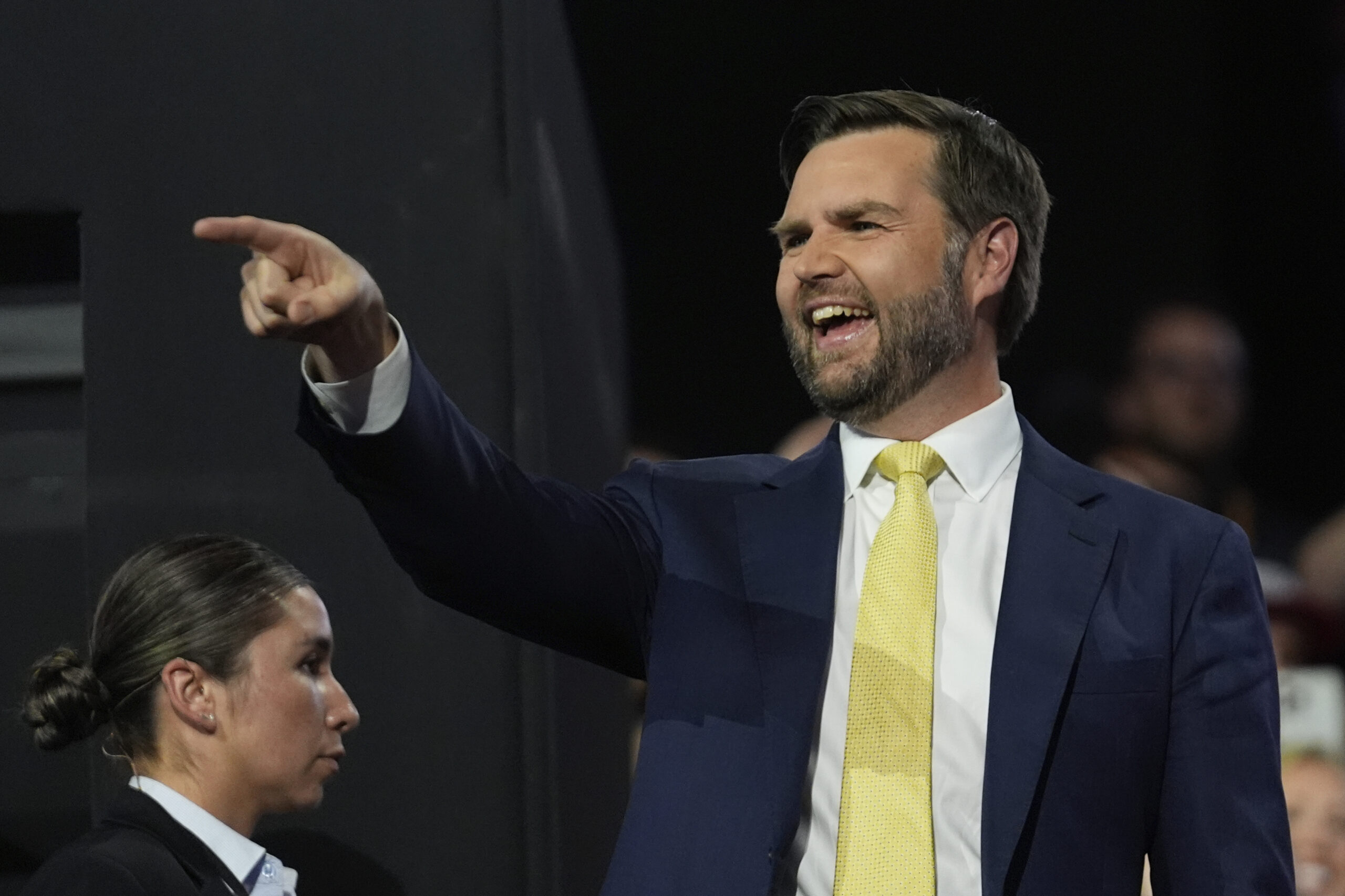There is a popular idea in political discourse called the Horseshoe Theory, which is that if you draw an ideology map in the shape of a horseshoe, it is actually more closely tied to the centrists than to the two sides.
It’s not particularly a serious academic theory, but it can be a useful overview when partisan loyalty is going through the kind of upheaval that’s been seen, especially on the American right, over the last decade.
Where that upheaval is most evident is the rise of Ohio Sen. JD Vance, a self-described Appalachian populist who is currently running to be former President Donald Trump’s vice president.
Vance is widely seen as the vanguard of a millennial far-right that is supposed to defend blue-collar workers and punish greedy business owners.
He has also repeatedly clashed with the Reagan-era Republican dogma that has made the party popular among wealthy corporate heads.
As 2024 approaches, Vance has faced criticism from Republicans for praising President Joe Biden’s top antitrust advocate, FTC Chairwoman Lina Khan, who Trump’s running mate said is “one of the few people in the Biden administration who I think is doing a good job,” Khan said in February.
The Republican politician has teamed up with Wall Street’s number one enemy, Massachusetts Democratic Senator Elizabeth Warren, to pass legislation that would crack down on big banks.
Last June, Vance himself alluded to the horseshoe-shaped evolution of his views, telling Ross Douthat of The New York Times: “The people on the left, I would say, whose politics I accept, are the Bernie Bros.”
The senator is not alone in the new anti-business wing of the Republican Party. Meanwhile, Josh Hawley, a Republican from Missouri, is another young Trump supporter who positions himself as another defender of workers, CNN reported.
Last month, Hawley stood out — even among Democrats — when he shamed Boeing’s chief executive for accepting a big pay raise while shortchanging the rank and file.
Industry leaders do not like this image for Trump’s candidacy.
“For many business leaders, knowing Vance is not the same as loving him,” a group of researchers from the Yale Chief Executive Leadership Institute wrote in Time magazine.
“Many of Vance’s economic policy positions amount to an American chief executive’s worst nightmare: a hodgepodge of populist promises that will expand government’s reach into the economy, undermine global trust and subvert free markets.”
Rupert Murdoch, media mogul and hedge fund pioneer Ken Griffin were apparently part of that anti-Vance group, according to the Washington Post.
Anxious company leaders can take solace in some ideas from the left, where longtime labor advocates say Vance-Hawley’s millennial populism is little more than an act.
“A Trump-Vance White House is a corporate CEO’s dream and a worker’s nightmare,” AFL-CIO President Liz Shuler said in a statement. “Senator JD Vance likes to act like a union sympathizer on the picket lines, but his record shows that’s a sham.”
Keep reading:
- LGBTQ advocates slam JD Vance for supporting anti-community policies
- Hispanic activists accuse JDVance of having “an extensive anti-immigrant agenda”
- Joe Biden and his campaign claim that JD Vance is a “clone” of Donald Trump and an extremist
